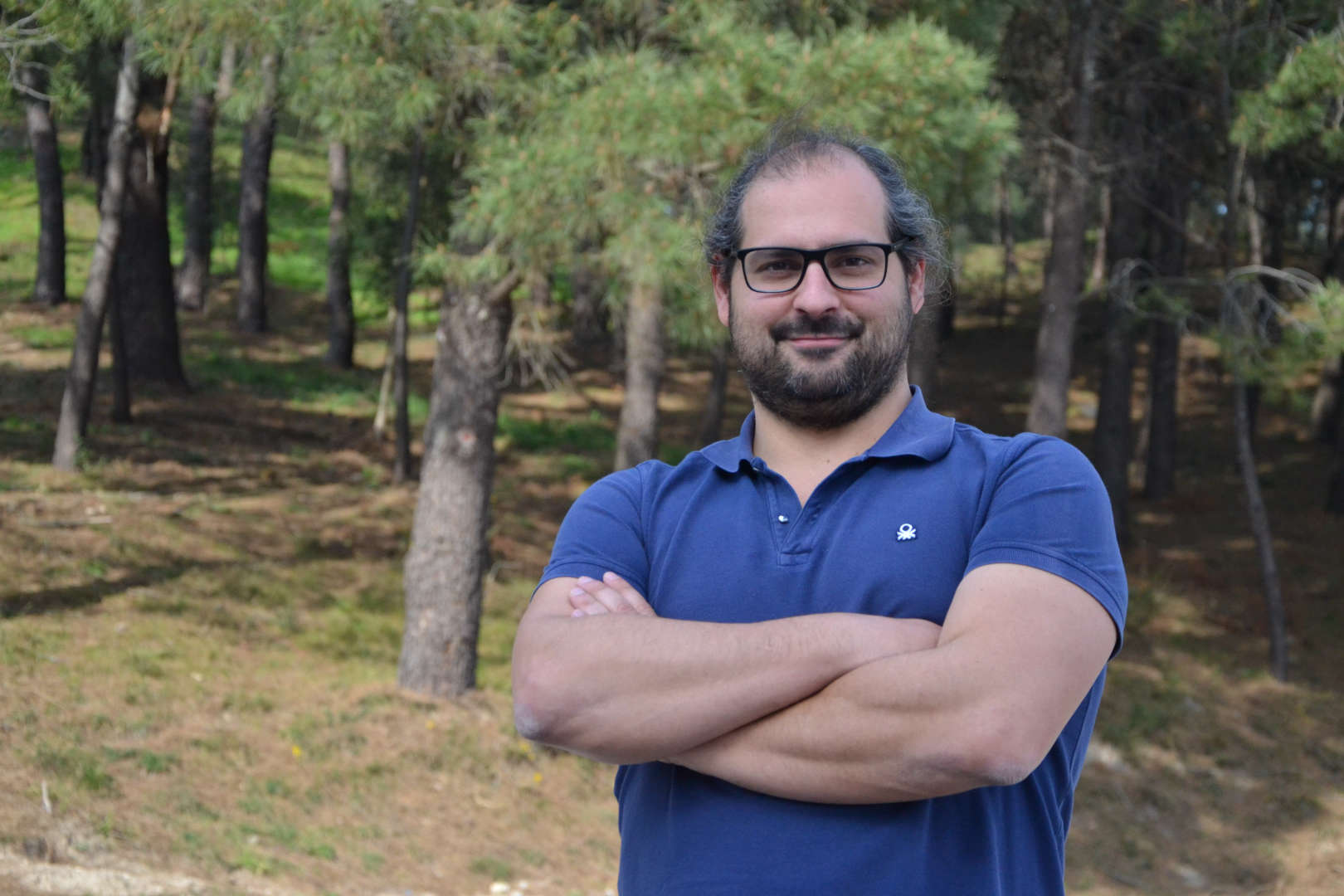- Menu
- Passa a palavra.
Partilha esta página. - Linked in
- Copiar Url
-

Short Bio (EN): Alexandre Madeira é um membro do HASLab - INESC TEC que está a desenvolver o projecto de pós-doutoramento "dynamic logics for every season" suportado por uma bolsa individual BPD FCT (SFRH /BPD/103004/2014). O projecto é acolhido no HASLab - INESC TEC e no centro CIDMA sob orientação científica de Luís S. Barbosa (Dep. Informática, Univ. Minho) e Manuel A. Martins (Dep. Matemática da Univ. Aveiro). O Alexandre é ainda o Investigador Responsável do projecto R&D da FCT "DaLí: Dynamic logics for cyber-physical systems: towards contract based design". Interesses de Investigação: - Fundamentos Matemáticos para a Engenharia de Software - Métodos Lógicos e Algébricos para o Sesenvolvimento de Software - Geração Paramétrica de Lógicas Modais/Hibridas/Dinamicas - Algebra de Processos
2023
Autores
Cruz, A; Madeira, A; Barbosa, LS;
Publicação
ELECTRONIC PROCEEDINGS IN THEORETICAL COMPUTER SCIENCE
Abstract
Often in Software Engineering a modelling formalism has to support scenarios of inconsistency in which several requirements either reinforce or contradict each other. Paraconsistent transition systems are proposed in this paper as one such formalism: states evolve through two accessibility relations capturing weighted evidence of a transition or its absence, respectively. Their weights come from a specific residuated lattice. A category of these systems, and the corresponding algebra, is defined providing a formal setting to model different application scenarios. One of them, dealing with the effect of quantum decoherence in quantum programs, is used for illustration purposes.
2023
Autores
Cunha, J; Madeira, A; Barbosa, LS;
Publicação
THEORETICAL ASPECTS OF SOFTWARE ENGINEERING, TASE 2023
Abstract
The development of more flexible and robust models for reasoning about systems in environments with potentially conflicting information is becoming more and more relevant in different contexts. In this direction, we recently introduced paraconsistent transition systems, i.e. transition systems whose transitions are tagged with a pair of weights, one standing for the degree of evidence that the transition exists, another weighting its potential non existence. Moreover, these structures were endowed with a modal logic [3] that was further formalised as an institution in [5]. This paper goes a step further, proposing an approach for the structured specification of paraconsistent transition processes, i.e. paraconsistent transition systems with initial states. The proposed approach is developed along the lines of [12], which introduced a complete methodology for (standard) reactive systems development building on the Sannella and Tarlecki stepwise implementation process. For this, we enrich the logic with dynamic modalities and hybrid features, and provide a pallet of constructors and abstractors to support the development process of paraconsistent processes along the entire design cycle.
2023
Autores
Knapp, A; Hennicker, R; Madeira, A;
Publicação
RELATIONAL AND ALGEBRAIC METHODS IN COMPUTER SCIENCE, RAMICS 2023
Abstract
Event/data-based systems are controlled by events, their local data state may change in reaction to events. Numerous methods and notations for specifying such reactive systems have been designed, though with varying focus on the different development steps and their refinement relations. We first briefly review some of such methods, like temporal/modal logic, TLA, UML state machines, symbolic transition systems, CSP, synchronous languages, and Event-B with their support for parallel composition and refinement. We then present E. -logic for covering a broad range of abstraction levels of event/data-based systems from abstract requirements to constructive specifications in a uniform foundation. E. -logic uses diamond and box modalities over structured events adopted from dynamic logic, for recursive process specifications it offers (control) state variables and binders from hybrid logic. The semantic interpretation relies on event/data transition systems; specification refinement is defined by model class inclusion. Constructive operational specifications given by state transition graphs can be characterised by a single E. -sentence. Also a variety of implementation constructors is available in E. -logic to support, among others, event refinement and parallel composition. Thus the whole development process can rely on E. -logic and its semantics as a common basis.
2023
Autores
Santos, J; Figueiredo, D; Madeira, A;
Publicação
THEORETICAL ASPECTS OF SOFTWARE ENGINEERING, TASE 2023
Abstract
A wide range of methods from computer science are being applied to many modern engineering domains, such as synthetic biology. Most behaviors described in synthetic biology have a hybrid nature, in the sense that both discrete or continuous dynamics are observed. Differential Dynamic Logic (dL) is a well-known formalism used for the rigorous treatment of these systems by considering formalisms comprising both differential equations and discrete assignments. Since the many systems often consider a range of values rather than exact values, due to errors and perturbations of observed quantities, recent work within the team proposed an interval version of dL, where variables are interpreted as intervals. This paper presents the first steps in the development of computational support for this formalism by introducing a tool designed to models based on intervals, prepared to translate them into specifications ready to be processed by the KeYmaera X tool.
2023
Autores
Madeira, A; Martins, MA;
Publicação
WADT
Abstract
Teses supervisionadas
2018
Autor
Leandro Rafael Moreira Gomes
Instituição
UA
2016
Autor
Leandro Rafael Moreira Gomes
Instituição
FCT
0
Autor
Yoan David Ribeiro
Instituição
FCT
The access to the final selection minute is only available to applicants.
Please check the confirmation e-mail of your application to obtain the access code.

